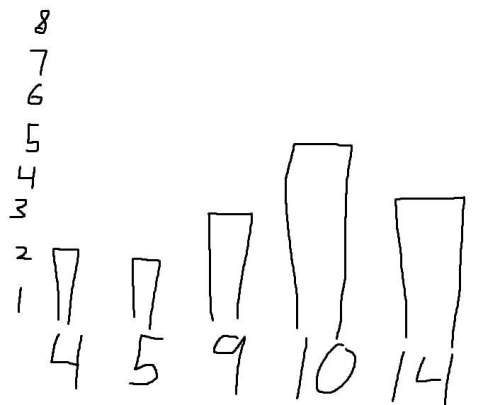
Mathematics, 17.08.2020 02:01 srickie85
N=1500(2^018t), t≥0 Find the initial number of cells (N) in the culture, given the exponential function.

Answers: 2


Other questions on the subject: Mathematics

Mathematics, 21.06.2019 17:00, MustafaEtroshi
Find dy/dx using implicit differentiation ln(20+e^xy)=y
Answers: 3

Mathematics, 21.06.2019 20:50, RidhaH
Determine the common ratio and find the next three terms of the geometric sequence. 649-14-02-00-00_files/i0100000, 649-14-02-00-00_files/i0100001, 2, a. 3; 649-14-02-00-00_files/i0100002, 649-14-02-00-00_files/i0100003, 649-14-02-00-00_files/i0100004. c. 649-14-02-00-00_files/i0100005; 649-14-02-00-00_files/i0100006, 649-14-02-00-00_files/i0100007, 649-14-02-00-00_files/i0100008. b. 3; 6, 18, 54 d. 649-14-02-00-00_files/i0100009. 6, 18, 54 select the best answer from the choices provided a b c d
Answers: 1

Mathematics, 21.06.2019 21:00, angelaguero536
In the field of thermodynamics, rankine is the unit used to measure temperature. one can convert temperature from celsius into rankine using the formula , what is the temperature in celsius corresponding to r degrees rankine? a. 9/5(c - 273) b. 9/5(c + 273) c. 5/9( c - 273) d. 5/9( c + 273)
Answers: 1

You know the right answer?
N=1500(2^018t), t≥0 Find the initial number of cells (N) in the culture, given the exponential funct...
Questions in other subjects:

English, 04.06.2021 20:00

Mathematics, 04.06.2021 20:00



Mathematics, 04.06.2021 20:00


Mathematics, 04.06.2021 20:00

Biology, 04.06.2021 20:00


Biology, 04.06.2021 20:00








